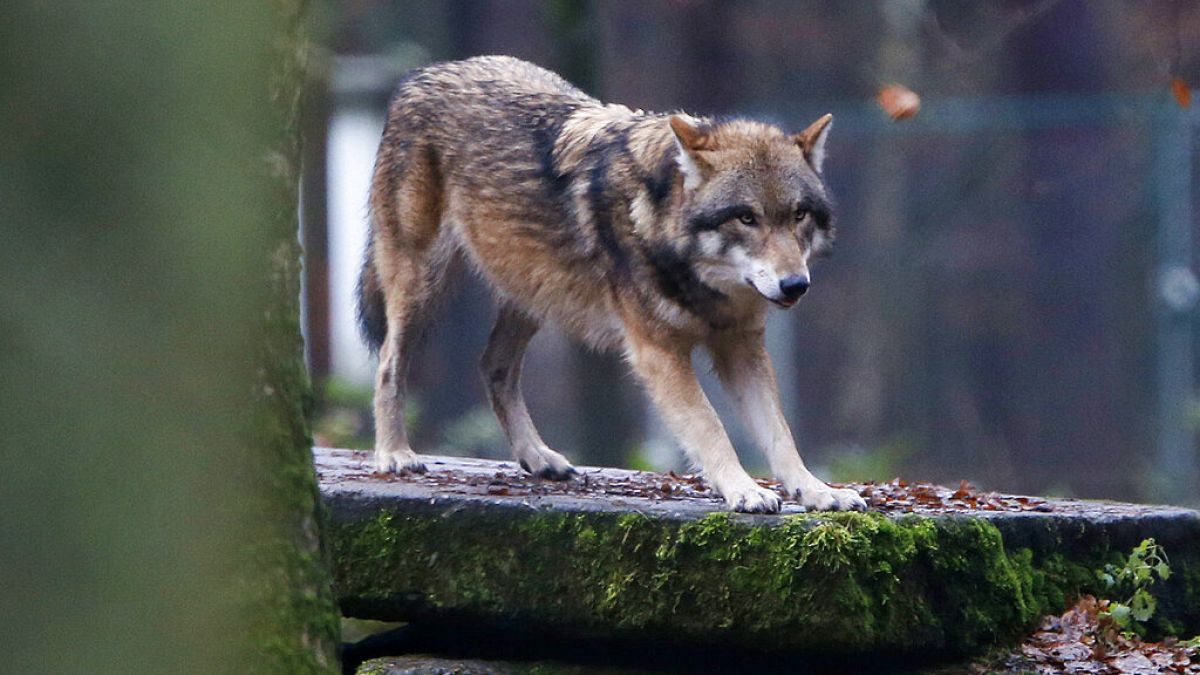Wolves to lose protection as EU secures support for status downgrade

Change in status under Bern Convention on nature protection could expose burgeoning wolf populations to culling and hunting for sport.
The Council of Europe has backed an EU proposal to downgrade the protection status of wolves from ‘strictly protected’ to ‘protected’ in a move that has prompted a wave of outrage from conservationists who say the move was political rather than science-based.
The European Commission proposed the change to the Bern Convention on the conservation of European wildlife and natural habitats last December as a necessary prequel to amending the EU’s own nature protection law.
This would allow “more flexibility in managing wolf populations”, the EU executive said. President Ursula von der Leyen described the vote as “important news for our rural communities and farmers” and said a “balanced approach” was needed to protect livelihoods.
Von der Leyen lost a family pony to a wolf attack in 2022, and was criticised last year for suggesting the animals also pose a risk to humans.
Newly installed environment commissioner Jessika Roswall recognised the success of conservation measures over the decades, but said the “reality on the ground” was changing. “Ever increasing wolf populations and the risk that this poses has justified to adapt the legal protection status of the wolf,” she said.
Green MEP Thomas Waitz said the EU executive had “bowed down” to pressure from a centre-right European People’s Party whose members “irresponsibly fuel anger and fears”. The EPP narrowly failed to block a new Nature Restoration Law this year amid a broader pushback against ‘green deal’ legislation.
A strictly protected species should not be deliberately killed, captured, kept or disturbed, nor their breeding grounds damaged, according to the international agreement ratified by 50 countries in an area encompassing Iceland, Azerbaijan and Tunisia.
The decision taken behind closed doors in Strasbourg by the standing committee to the convention will take effect in three months unless at least a third, or 17, parties to the treaty formally object.
‘Dangerous precedent’
For conservationists, the decision to endorse a proposal they see as the direct result of pressure from the industrial farming and hunting lobby and support from right-wing and populist political groups is bad news for nature protection more broadly.
“The EU decision-making on lowering legal protections for wolves sets a dangerous precedent for other European species, such as bears and lynx,” said Joanna Swabe, head of public affairs at Humane Society International/Europe, who said changes must be based purely on scientific evidence.
“Instead, decisions on wolves have clearly been driven by political expediency and succeed only in appeasing vocal interest groups, such as hunters, who prefer to take recourse to rifles, rather than seeking coexistence with large carnivores,” Swabe said.
For Léa Badoz at Eurogroup for Animals, the wolf has become a “political pawn” in Brussels, where the political balance of power has shifted to the right. “Downgrading protection will not solve the challenges of coexistence nor help farmers,” she said. “It is based on misconceptions, and threatens wolves while failing to provide real support for farmers and local communities.”
These sentiments were echoed by Sofie Ruysschaert at BirdLife Europe and Central Asia, who said the move risks rolling back decades of progress in restoring wolf populations from the verge of extinction. “Instead of investing in science-based coexistence measures between humans and wildlife, leaders have chosen a political narrative that scapegoats wildlife for broader societal challenges.”
A U-turn by Brussels
The EU voted as a bloc, supplying 27 of the votes for its own proposal. In order to pass, at least another seven parties to the convention had to vote in favour to achieve the required two-thirds.
In the end, only five countries – Albania, Bosnia-Hercegovina, Monaco, Montenegro and the UK – voted against, while Tunisia and Turkey abstained, according to a source with knowledge of the matter. The Council of Europe told Euronews it would publish full details of the vote on Friday (6 December).
Florencia Sanchez at the European Environmental Bureau said the move by Brussels “undermines European environmental governance and diminishes the credibility of EU environmental policy as one grounded in scientific evidence.”
Today’s vote marks a reversal of the position of the EU, which in 2022 rejected a proposal from Switzerland for the same downgrade in protection status – a proposal that garnered support only from Azerbaijan, Belarus, Georgia, Liechtenstein and Türkiye at the time.
Italian non-profit Green Impact said it plans to challenge the EU Council’s agreement to back the Commission’s proposal in the European Court of Justice, with the group’s president Gaia Angelini calling for a revision of an “obsolete regulatory framework designed in the 1970s and 1980s”.
The Bern convention entered into force in 1982, since when Europe’s wolf population has grown to over 20,000 across all but three member state. In a report that accompanied its proposal last year, the European Commission said numbers had roughly doubled since 2012 and suggested that around one in 1,500 of Europe’s six million sheep are lost to wolf attacks each year.
Related
Zelenskyy reiterates call for air truce after huge Russian attack…
We need Russia to stop attacks, Zelenskyy says, backing calls for truce in air, at seaUkrainian president Volodymyr Zelenskyy has responded to overnight attacks
Europe scrambles to rearm as Trump threatens security guarantees and…
CNN — European leaders have vowed to rearm the continent at historic emergency talks h
Russia launches ‘massive’ attack on Ukraine after Europe rushes to…
Ukraine's energy and gas infrastructure came "under massive missile and drone shelling" by Russia on Friday, a Ukrainian minister said."The energy and gas infra
American severance may be averted, but Europe’s leaders must fear…
With a mixture of regret, laced with incredulity, European leaders gathered in Brussels to marshal their forces for a power struggle not with Russia, but with t












